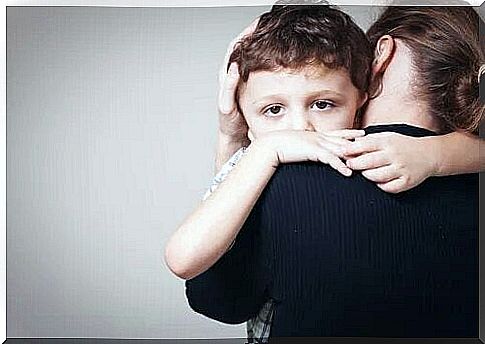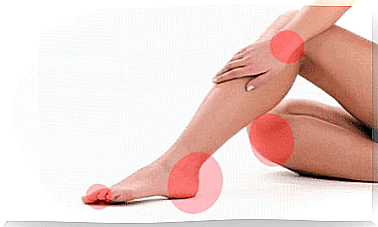Self-pity And The Role Of The Victim
There is a fine line between self-pity and falling into the role of a victim. What can you do to prevent it? Setting clear goals can help.

There are some differences between self-compassion and the role of the victim, but depending on your attitude, these can be almost synonymous and hurt you greatly.
According to the Dictionary of the French language, self-compassion is compassion towards oneself, compassion being defined as a: “feeling of sadness, tenderness and identification with someone’s ills”.
As professionals such as author Jack Kornfield point out, compassion arises from the awareness that you are interconnected with all things and that it is part of your innermost nature.
In this sense, self-compassion can be positive because it involves being warm to yourself, instead of criticizing yourself strongly when you don’t do things right.
This is why professionals Simón and Germer, focusing on the self-compassion of mindfulness and the Buddhist conception, define it as:
So what’s wrong with that?
Self-pity and the role of the victim
Instead of taking self-pity as a way to avoid being hard on yourself and pushing yourself to do your best, it might lead you to take on the role of victim.
Falling into the role of victim can lead you to behave irresponsibly, to have attitudes of avoidance or passivity in the face of problems. Those who take on the role of victim may blame others for their problems.
The problem that self-pity can lead you to, by not realizing how you come to terms with your difficulties, is positioning yourself as victims and preventing yourself from moving forward in life.

Why does the feeling of self-pity arise?
People who have too much self-compassion and whose behaviors end up victimizing them for anything tend to have low self-esteem and don’t feel empowered enough to solve problems.
For this reason, these people most of the time live in pain and expect others to solve everything for them. Obviously, people who take on the role of victim end up moving away from success, unable to overcome challenges and achieve goals.
Those who have constant self-pity can end up becoming eternal victims who blame God, neighbors, luck, life, partner, co-workers or whoever, for their situation. If you see yourself as weak, helpless, you will ultimately never be able to take full control of your life.
What is the root of this feeling?
Many people feel sorry for themselves and thus assume the roles of victims because since childhood they have only received limiting messages from their parents, such as:
- “Poor thing, right now he can’t do his homework.”
- “Poor kid, he’s not doing well. “
- “Bad things always happen to him. “
- “What fault does he have for what happened”, among others.
Of course, children listen to these types of messages and gradually internalize them until they become part of their repertoire during adulthood.
Another reason could be that a child sees from an early age how his mother or father is victimizing himself and blames everything on others. Subsequently, the child ends up imitating this attitude.
If a child has also been a real victim of some type of abuse, it can affect the rest of his life if he does not consciously do a job in therapy.

What to do to avoid falling into the role of victim?
- Be aware. Keep in mind that this feeling will only lead to you blocking yourself and limiting all of your abilities and potentials.
- Stop trying to find the source of your problems. At this point, if the important thing is to change, it doesn’t matter how it all started, because you could fall into the eternal circle of culprit searches.
- Avoid complaining. And so see the bright side. But most importantly, start by looking at all that you have in life and be grateful for it.
- Leave pity. Stop trying to get the attention of others and acknowledge your responsibility instead.
- Start solving your problems. Stop delegating tasks to others. Remember, the more you allow others to act on the issues you are in, the more you let go of control.
- Act like an adult person. Keep in mind that you are no longer a helpless child in need of parental protection. You are an adult person, with responsibilities.
- Set goals for yourself. Go ahead with determination.
Everything that happened yesterday is in the past, give up self-pity and the role of eternal victim. Today is a new day and you can start living in a completely different way. Take control of your life and see how far you can go. It is never late!









